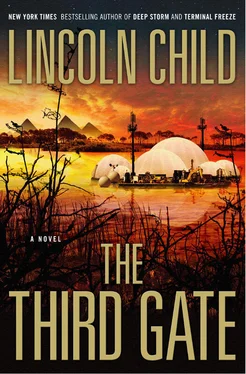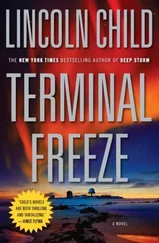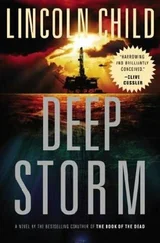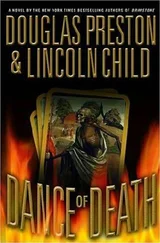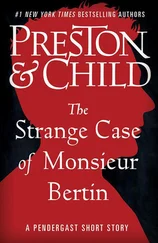Lincoln Child - The Third Gate
Здесь есть возможность читать онлайн «Lincoln Child - The Third Gate» весь текст электронной книги совершенно бесплатно (целиком полную версию без сокращений). В некоторых случаях можно слушать аудио, скачать через торрент в формате fb2 и присутствует краткое содержание. Жанр: Триллер, на английском языке. Описание произведения, (предисловие) а так же отзывы посетителей доступны на портале библиотеки ЛибКат.
- Название:The Third Gate
- Автор:
- Жанр:
- Год:неизвестен
- ISBN:нет данных
- Рейтинг книги:3 / 5. Голосов: 1
-
Избранное:Добавить в избранное
- Отзывы:
-
Ваша оценка:
- 60
- 1
- 2
- 3
- 4
- 5
The Third Gate: краткое содержание, описание и аннотация
Предлагаем к чтению аннотацию, описание, краткое содержание или предисловие (зависит от того, что написал сам автор книги «The Third Gate»). Если вы не нашли необходимую информацию о книге — напишите в комментариях, мы постараемся отыскать её.
The Third Gate — читать онлайн бесплатно полную книгу (весь текст) целиком
Ниже представлен текст книги, разбитый по страницам. Система сохранения места последней прочитанной страницы, позволяет с удобством читать онлайн бесплатно книгу «The Third Gate», без необходимости каждый раз заново искать на чём Вы остановились. Поставьте закладку, и сможете в любой момент перейти на страницу, на которой закончили чтение.
Интервал:
Закладка:
“A catfish and a chisel,” Romero said. “The phonetic representation of Narmer’s name. At least, that’s what I assume-if March would ever let me take a look at the damn thing.”
Rush pressed the button on the microphone. “Christina, would you mind reserving your comments until after I’ve finished my report?”
Romero inclined her head and pressed her fingers lightly to her forehead in mock genuflection. “Sorry.”
Rush addressed the microphone again. “As for the bones themselves, the skull is relatively intact, the neurocranium and the splanchnocranium suffering the least amount of damage. The temporal bones are missing. The mandible, hyoid bone, and clavicle show somewhat more deterioration. Most of the teeth are missing, and those that remain show the advanced caries common to the period.” He paused to examine the rest of the bones. “The articulated vertebra grow increasingly damaged and decayed as we move from the cervical to the thoracic to the lumbar. The last extant vertebra is L two-the sacral and coccygeal vertebrae are entirely missing. Ribs one through eight are extant. While the lower of the existing ribs become increasingly damaged, there are distinct marks on the anterior of rib six”-here he paused again for a closer look-“that suggest the scraping of a knife or sword. This would lead one to assume the manner of death to be homicide.”
“I knew it!” Romero shouted in a triumphant voice.
This sudden outburst, in marked contrast to Rush’s even, reasoned tone, caused Logan to jump. Once again, Rush turned off the microphone, an irritated look crossing his face. “Christina, I have to insist that you-”
“But you’re wrong about the manner of death,” Romero interrupted again. The note of triumph had not left her voice. “It wasn’t murder. It was suicide.”
Rush’s look of irritation turned to something closer to disbelief. “How can you possibly know-”
“And that isn’t all. Not far away-maybe fifty, maybe a hundred yards north of where this was discovered-we’re going to find more skeletons. A whole hell of a lot more skeletons. I’m off to tell Valentino where to concentrate his divers.” And without another word she turned and walked briskly out of the medical bay, leaving Logan and Rush to look at each other in bafflement.
20
The discovery of the skeleton had another effect beyond boosting the spirits of the searchers and raising the level of excitement across the Station-it also heralded the approach of Porter Stone himself. Arriving sometime late that evening under cover of darkness, he called for a Station-wide meeting the following morning. All work-even the diving itself-would take a thirty-minute recess while Stone addressed the expeditionary team.
The meeting was to be held in the largest space on the Station: the machine shop in Green. As Logan stepped into the shop at precisely ten o’clock, he looked around curiously. Metal racks stretched from floor to ceiling on three of the walls, containing every imaginable part, tool, and piece of equipment. Several Jet Skis sat on lifts in various stages of disassembly. A half-dozen other large sections of engines and diving equipment were arrayed on metal tables. In one corner sat what looked like part of the ruined generator, its flanks blackened and ugly under the bright work lights.
Logan’s glance shifted from the room itself to those standing within it, waiting for Stone. It was an incredibly diverse crowd: scientists in lab coats, technicians, divers, roustabouts, cooks, electricians, mechanics, engineers, historians, archaeologists, pilots-a throng of some one hundred and fifty people, all gathered here at the whim of a single man: a man with a crystal clear vision of what he wanted to accomplish and with the iron will to see that vision through.
As if on cue, Stone stepped into the machine shop. The crowd broke into spontaneous applause. Stone moved through the multitude, shaking hands, murmuring fragments of sentences to people who stopped him. He had abandoned the Arab garb for a linen suit, but if he had been wearing a leather bomber jacket and a pith helmet he would have looked no more the adventurer: something about his tanned, heavily weathered skin and the way his tall, lean body moved with an almost animal grace seemed to exude exploration and discovery.
Reaching the back of the room, he turned to face the group, smiling broadly, and raised his hands. Gradually, the crowd fell into a restive silence. Stone glanced around, still smiling, allowing the drama to build. And then at last he cleared his throat and began to speak.
“My first experience as a treasure seeker,” he said, “took place when I was eleven. In the Colorado town where I grew up, there was a local legend about a band of Indians that had once lived in the fields just outside town. Boys like myself, college students, even professional archaeologists had visited those fields again and again, dug holes and test trenches, swept the area with metal detectors-all without finding so much as a single bead. I was among them. I must have wandered over those fields a dozen times, eyes on the ground, searching.
“And then one day I raised my eyes from the ground. I looked-really looked — at the place for the first time. Beyond the fields, the land fell gently down to the Rio Grande, about a mile away. There were stands of cottonwoods along the river, and the grass was lush and thick.
“In my youthful mind’s eye I traveled back two hundred years. I saw a band of Indians, camped on the river’s edge. There was water for drinking and cooking, abundant fish, sweet grass for the horses, shade and shelter beneath the trees. Then I looked at the dry, barren field in which I stood. Why, I wondered, would Native Americans make their camp here-when another, more favorable spot was so close by?
“So I hiked the mile down to the river and began poking around in the dirt and grass by the riverbank. And within ten minutes I discovered this.” Reaching into his pocket, he drew something out and held it up for the crowd to see. Logan saw it was an obsidian arrowhead, perfectly flaked: a real beauty.
“I went back to that site many more times,” Stone continued. “I found more points, along with clay pipes, stone pestles, and a host of other things. But nothing, before or since, has ever filled me with such excitement as the discovery of that very first arrowhead. These days, I never go anywhere without it.” He replaced it in his pocket, then glanced at the throng, his eyes roving from person to person, before speaking again.
“It wasn’t just the thrill of discovery. It wasn’t just uncovering something of beauty, something of value. It was using my intellect, my ability to think outside the scholarly box, to unravel the riddles of the past. All the many others before me had accepted as gospel the stories of where those Native Americans had camped. I, too, started out that way-but then I learned an important lesson. A lesson I’ve never forgotten.”
Putting his hands in his pockets, he began to stride back and forth as he spoke. “Archaeological excavation, my friends, is like a mystery story. The past likes to keep its secrets. It doesn’t want to yield them up. So it’s my job to play detective. And any good detective knows that the best way to solve a mystery is to bring as many tools, as much evidence, as much investigation, to bear as possible.”
He stopped abruptly, ran a hand through his white hair. “As you know, I’ve done this many times before-with results that speak for themselves. I’m doing it again here and now. I have spared no expense on research or equipment-or talent. All of you standing before me are the best at what you do. I have done my part-and, with the discovery of this skeleton, almost without doubt the personal bodyguard of the pharaoh Narmer-we find ourselves once again on the very cusp of success. I am convinced we are days, mere days, from finding the tomb-and in so doing, learning more of those secrets that the past tries so hard to conceal.”
Читать дальшеИнтервал:
Закладка:
Похожие книги на «The Third Gate»
Представляем Вашему вниманию похожие книги на «The Third Gate» списком для выбора. Мы отобрали схожую по названию и смыслу литературу в надежде предоставить читателям больше вариантов отыскать новые, интересные, ещё непрочитанные произведения.
Обсуждение, отзывы о книге «The Third Gate» и просто собственные мнения читателей. Оставьте ваши комментарии, напишите, что Вы думаете о произведении, его смысле или главных героях. Укажите что конкретно понравилось, а что нет, и почему Вы так считаете.
